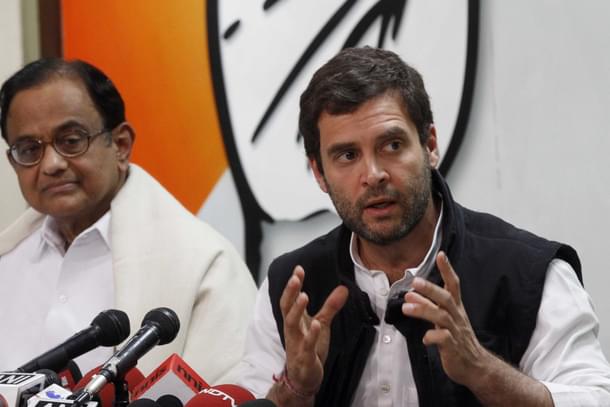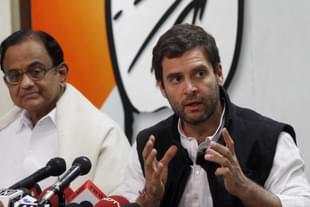Insta
‘Was In Free Flow Of Political Speech’: Rahul Gandhi After Receiving Notice For ‘New Law To Shoot Tribals’ Allegation
Swarajya Staff
Jun 21, 2019, 03:28 PM | Updated 03:28 PM IST
Save & read from anywhere!
Bookmark stories for easy access on any device or the Swarajya app.


Following a National Commission for Scheduled Tribes (NCST) notice, Congress President Rahul Gandhi has provided an ‘explanation’ for his “Narendra Modi government has mad a new law allowing tribals to be shot” allegation, by claiming that he made the remark in “free flow of a political speech”, New Indian Express has reported.
While addressing an election rally in Madhya Pradesh’s Shahdol on 23 April Gandhi had alleged, “The Narendra Modi government has made a new law in which there is a line that says tribal’s can be shot at...They snatch your land, take away your jungle and water and then say that tribal’s can be shot at”.
He had also alleged that the government seeks to amend the provisions of the Indian Forest Act, 1927 "drastically and in a draconian manner".
Taking cognisance of media reports, the NCST had issued a notice to Gandhi on 3 May and now Rahul Gandhi's counsel in a reply said that the Congress chief made the remarks in "free flow of a political speech".
The statement given by Congress president’s counsel, claimed that his client summarised the finalised amendment to Section 66 of the Indian Forest Act, 1927 in which “statutory empowerment is being provided for use of force and highly intrusive prejudicial and physical measures against citizens who are mostly tribal and forest inhabitants”.
The NCST has rubbished such allegations by clarifying that the proposed amendment is related to "power to prevent commission of an offence. After the amendment, it will be called Indian Forest Act, 2019".
Elaborating, the NCST official further added "In broad terms, the amendment says if a forest officer arrests a person while committing an offence in forest lands, like smuggling forest produce or carrying arms, the onus to establish his case lies on the accused".
Rahul Gandhi had also received a show-cause notice from the election commission over this statement, to which he had replied that he had “tried to summarise an amendment to the Indian Forest Act in a simple language during a political speech”.





